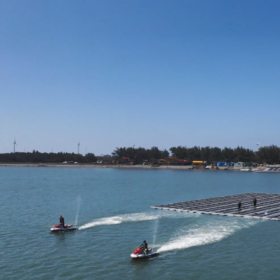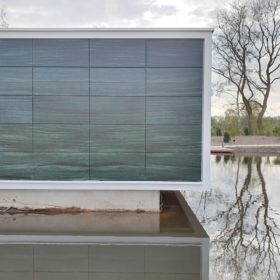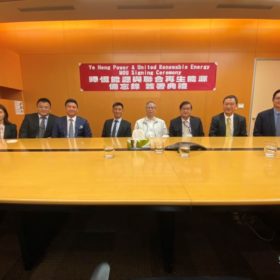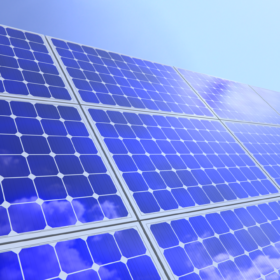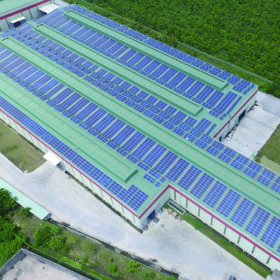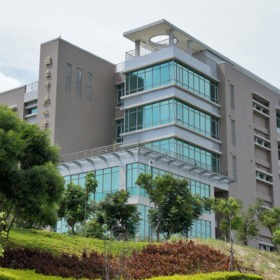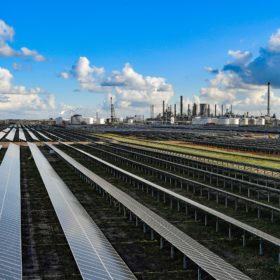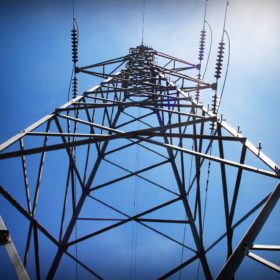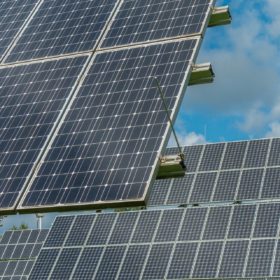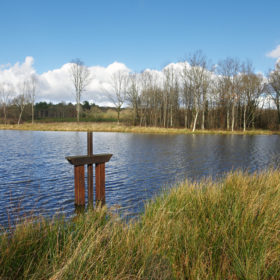Financial close for 181 MW floating PV plant in Taiwan
The installation will be located in the Changbin Lunwei East district. A NT$7.2 billion loan was secured from a consortium of seven banks and the solar facility is expected to be grid-connected this year.
Wood-like solar facades
Taiwanese manufacturer Heliartec Solutions is offering BIPV panels for building facades that can be designed to mimic different kinds of textures in conventional building materials. The panels can also work as colored laminated safety glass and replace traditional cladding in the ventilated facades of buildings. They vary in length from 60 cm to 240 cm, with widths ranging from 30 cm to 120 cm. Depending on their size, the panels can offer power outputs of 90 W to 150 W per square meter.
Taiwan’s URE signs 120 MW glass-glass bifacial module order
United Renewable Energy has signed a memorandum of understanding to supply project developer Ye Heng Power with 120 MW of its solar panels. It plans to start shipping the PV modules in the second half.
Marubeni acquires Taiwanese solar developer
The Japanese conglomerate will buy Chenya Energy for an undisclosed sum. The Taiwanese developer has a 270 MW solar project pipeline on the island.
Taiwan to add 2.2 GW of new solar this year
According to GlobalData, the country saw deployment of 1.6 GW of new PV installations last year, with cumulative capacity reaching 4.3 GW. Overall, around 20 GW of PV power should be installed on the island by 2026.
A nanoparticle-sensitized solar cell with 8.5% efficiency
The record feat compares to usual figures of 2-3% for such devices. The Taiwanese scientists who developed the cell said it was prepared with the Silar method and is based on a ternary metal sulfide-alloyed semiconductor. They claim performance could be further boosted.
The weekend read: Your guide to market growth in 2020
Some 15 countries are likely to be able to lay claim to the status of being members of solar’s “gigawatt club” in 2019, according to conservative projections from BloombergNEF. Nonetheless, PV suppliers, developers and service providers are always on the lookout for new pockets of growth. To kick off 2020, pv magazine’s global team of correspondents and editors have highlighted 10 “fast-growing” solar markets to evaluate where the opportunities, and potential risks, lie.
Solar-plus-storage will start to make big inroads in the year ahead
By this time next year we may be able to wave goodbye to that old chestnut about renewables endangering security of supply. Elsewhere, the price of lithium – and the products it goes into – could go either way after tanking this year.
Taiwan deployed 1.34 GW of solar in first ten months of 2019
The government claims 292 MW more solar was installed than in the same period of 2018. Taipei reported solar power generation increased 51.7% year-on-year for January-to-October.
Aquavoltaic potential in Taiwan
Scientists have developed a new mathematical model which indicates floating solar on fish farms could be a lucrative option in land-scarce Taiwan. Although floating arrays could hinder fish production, the losses would be largely compensated by electricity-related income.
